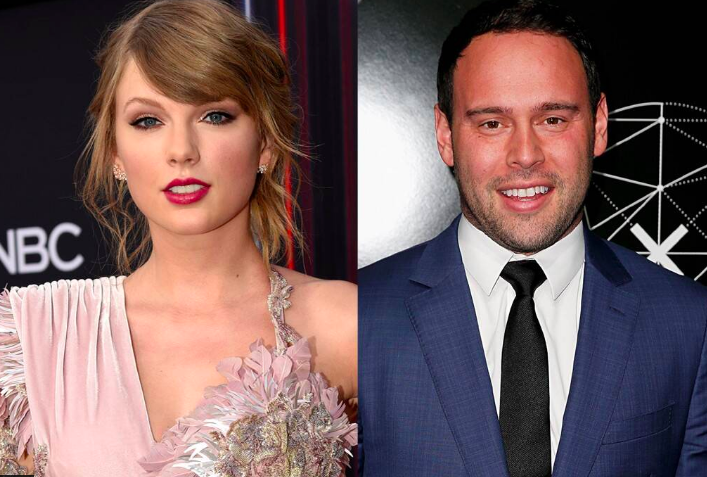Taylor Swift is not allowed to re-record her own work!
- Sep 24, 2019
- 4 min read
Updated: Nov 27, 2019
Taylor Swift recently announced she was going to re-record her first 6 albums - a direct response to Scooter Braun’s $300 million deal to acquire Scott Borchetta’s Big Machine Label Group.
Music mogul Braun works with the likes of Justin Bieber, Ariana Grande and Demi Lovato and is considered to be one of the most influential people in the music industry. Swift alleged Braun bullied her through his clients and their social media posts, and timed leaks of sensitive information.
She wrote in a lengthy Tumblr post how the deal felt like a massive betrayal, especially since this meant Braun would now own the master recordings of Swift’s first six albums – which she said she was never given the opportunity to own, nor to buy the label herself. This means someone Swift dislikes can now do exactly what he wants with her recordings.
Music rights are infamously complicated, but owning the copyright in the master recordings — the original copies of an artist’s work — is not everything. While the owner of a master (the actual recording of the song) typically has the ability to license the recordings for third party usage, there are separate publishing rights for the composition itself, which is usually split among the songwriters.
When a song is covered, permission is required from the songwriters. If someone wishes to use that track, for example when it is edited into a performance sports mix, permission is required from BOTH the songwriters (publishing) and the owner/s of the master. Swift has been the primary writer of her music since her debut self-titled album, meaning that copyrights on the publishing side of things won’t be as difficult for her as other popular hits.
The new sound-alike recordings, if she is able to legally re-record them, will function as covers of her own music, at which point either she or her new label Republic (owned by Universal) will own those new recordings, but not the ones recently purchased by Scooter Braun.
Owning the rights to a master recording means owning the right to make, sell, or distribute copies amongst other things. And now, those rights belong to Scooter Braun. Which means that if someone wants to license the original master for “Shake It Off” so that they can put it on a TV show or in an advert or on a platform such as ClicknClear, they need to get Braun’s permission, and they need to pay him a fee. NB: They would still need to contact the publisher to clear the publishing rights too.
This is why Swift has announced she wants to re-record her first 6 albums. This is similar to the use of cover versions in cheerleading mixes, an attempt to get around the rights of the original recording artist. The difference in this case it that it is the original recording artist trying to get around the rights of her previous record company! Whilst she believes this to be the perfect revenge, many have wondered if it’s truly feasible, or advisable, to re-record all the albums.
Firstly her contract with Big Machine has a clause preventing her from making new recordings of old songs until a certain time period has elapsed, so she will need to wait a while.
And Swift may have a second roadblock: an ‘original production clause’, under which she would be unable to directly copy the original versions of the Big Machine songs, which is a clause common in many contracts precisely designed to protect the record company from confusion in the market between similar sounding versions of the same song.
This begs the question: if Taylor Swift is struggling to create re-records of her own songs legally, then how can unknown (cover) artists be expected to do the same?
Ironically, by planning to create covers which are virtually identical to her own original hits, Swift has left herself vulnerable to a lawsuit. And the situation is even more clear-cut from the point of view of an unknown ‘copycat’ cover version, as the closer to the original they make their version the more vulnerable they are to a plagiarism (illegal copying) lawsuit from the recording artist and their record label.
If you are thinking of using cover music as a solution to legal music in your sports mix, remember that as well as the plagiarism problem (you should find cover music that sounds different to the original to avoid this risk), you will also still need to get written, legally binding confirmation from the person licensing the track to you, that the publishing rights have been cleared by the original owner/s of the music as well as the master rights of the new recording - most cover music providers simply ignore the publishing rights, which is both not compliant with music guidelines and leaves you unable to legally use the track.
If you would like to find out more or have any questions on the above, please reach out to our team directly and we would be delighted to help: music@clicknclear.com




Comments